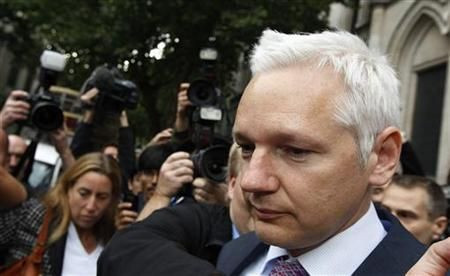The End of Whistle-blower WikiLeaks?

At the beginning of this month, we learned that Google and Sonic were demanded by the U.S. government to hand over WikiLeaks representative Jacob Appelbaum's email contacts. The request did not require a search warrant or notification for the search warrant.
Leader Julian Assange is now announcing a temporary suspension of the website's publishing efforts. By the end of the year, WikiLeaks could face shut down due to financial blockades from several major banks and credit card companies, some of which include Visa, Western Union, MasterCard, and PayPal.
Moreover, WikiLeaks donations have been dwindling over recent months. In order to keep the organization afloat, Assange says they need to shift gears to more aggressive types of fundraising. In the next 12 months, WikiLeaks requires a minimum of $3.5 million to continue their operations.
Up until this point, WikiLeaks has been relying on their cash reserves since the end of 2010. As more and more financial and online services deny working with the organization, it will only become a greater challenge for WikiLeaks to sustain themselves.
It's like this. If you witnessed a case of sexual assault in a crowded parade, you wouldn't immediately dial 911. That's because you belong to the majority of the population that assumes someone else would call for help in these situations. If we consider the social-psychological phenomenon of the bystander effect, which explains why individuals tend not to offer their assistance in cases of emergency, we can understand why every one of these major companies and banks are running at the sound and sight of WikiLeaks.
The phenomenon goes that the greater the number of bystanders there are, the less likely that any of them will help. WikiLeaks is currently facing fines, investigations, scrutiny, and threats, and the organization could not be in more trouble. It's perfectly natural that none of these services want to lend a hand. After all, if Bank of America could help WikiLeaks transfer donations, why should PayPal? Beyond that, no one wants trouble with Washington.
Consequently, this is why WikiLeaks has to depend on several small companies like MoneyGram International, one of the few that haven't banned WikiLeaks donations. No matter how important or controversial their work is, none of it will matter if they can't overcome this financial hurdle.
Aside from occupational obstacles, Assange himself is fighting a UK court's charges of sexual misconduct. He denies for having done anything and has yet to be charged.
All of this brings us back to my original question: Is there a place for a whistle-blower like WikiLeaks in our country? Tell us your thoughts in the comments below!
© Copyright IBTimes 2025. All rights reserved.





















